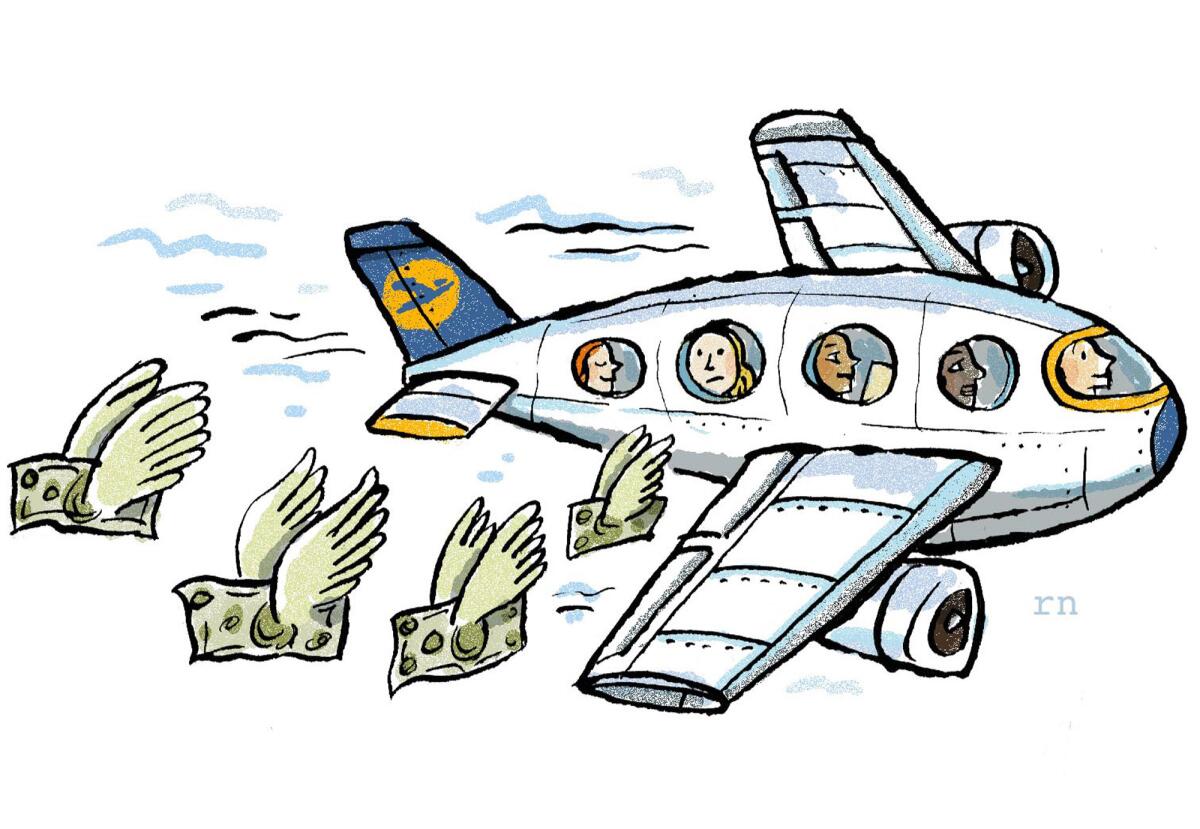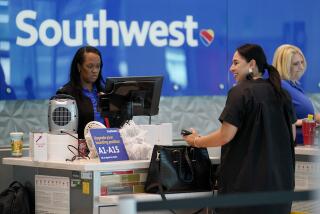More for Your Money: Getting the best airfares

- Share via
It’s difficult to know when to buy an airline ticket and when to wait. Some sites offer to guide you on the timing of your purchase.
I recently examined the fare prognostication tools used by Kayak and Bing, which advise travelers whether to buy plane tickets while searching those websites or to wait. Both sites use data from scores of past searches to predict whether you’re finding a fare at its lowest point or whether it may fall.
I examined 10 random routes and dates of travel, and the companies were generally united on their predictions, with one exception: For a hypothetical trip from Los Angeles to Portland, Ore., in mid-April, Bing and Kayak both brought back the same fare — $178 on both Delta and Alaska airlines — but differed in their recommendations.
Kayak said with 85% certainty to buy. Bing said to wait with 75% confidence.
Who won? Bing.
A week later, the price had fallen to $158.
That led me to a simple question: Why must we spend so much time guessing whether fares will rise or fall?
Darren Rickey, a vice president at Sabre Airline Solutions, a software provider for airlines and airports, said prices are in constant flux for a simple reason: Airlines are trying to fill planes. He said airlines see passengers as two types: business, with flexibility on price but not on dates, and leisure, with more flexibility on dates and less flexibility on price.
The airlines know they will be able to fill the plane at varying price points.
“They ask themselves, ‘How many seats do I need to sell at $1,000, $500 and the cheapest level, knowing I don’t want to fly with empty seats?’” said Rickey, who has worked in airline revenue management for an Australian carrier. “They don’t want to fly full at the cheapest fare if they can upsell some people.”
They usually can.
Airlines are trying to figure out how to fill flights months ahead of time and usually long before anyone actually is thinking about getting on them. They know that the fliers who book earliest on a typical flight will be leisure travelers, and they will be enticed with decent, but maybe not the best, prices.
Airlines don’t want to sell too many tickets too soon.
“You want to leave plenty of seats available because you know plenty of business travelers will book in the last couple of weeks,” Rickey said. Often, those travelers will pay more.
About 45 days out, he said, airlines begin considering whether they have sold enough seats on a particular flight. If the answer is no, as it often is, that’s when the most appealing prices pop up. You can easily calculate the day by using such sites as https://www.daycalc.appspot.com.
Conventional industry wisdom says the optimal time to buy a plane ticket is three to four weeks before departure, the sweet spot between early bookers and last-minute shoppers.
Meanwhile, airlines are responding not only to their own loads but also to competitors’ sales, a key reason many analysts say consumers can’t afford for the industry to become any further consolidated.
Not jumping too early or waiting too late turns out to be the best practice for airline customers. That, a little guessing and a little luck.
More to Read
Sign up for The Wild
We’ll help you find the best places to hike, bike and run, as well as the perfect silent spots for meditation and yoga.
You may occasionally receive promotional content from the Los Angeles Times.






